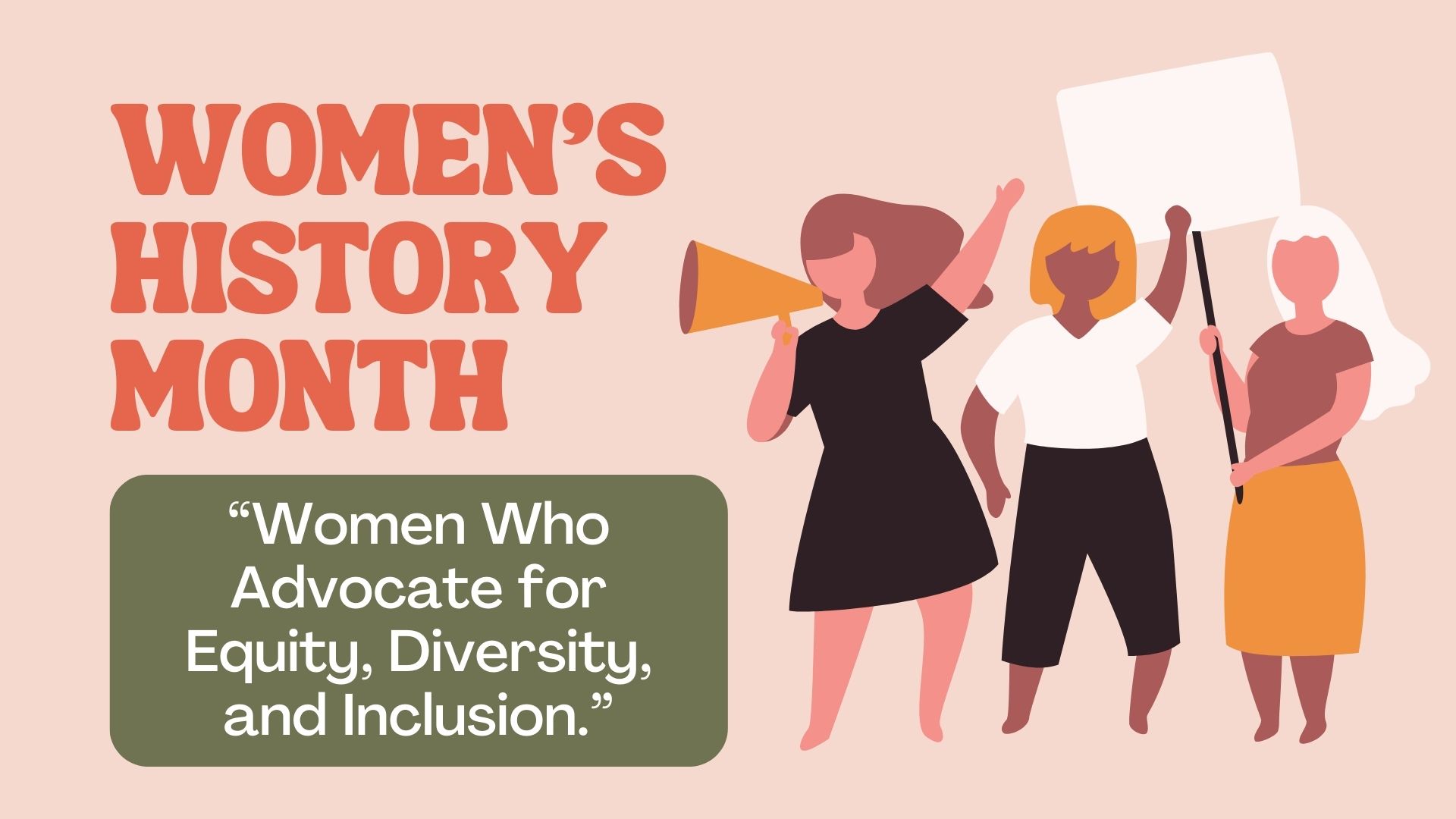The National Women’s History Alliance designates a yearly theme for Women’s History Month. The 2024 theme is “Women Who Advocate for Equity, Diversity, and Inclusion.” This theme celebrates women who understand the critical need to eliminate bias and discrimination from our lives and institutions. These remarkable women work tirelessly for fairness and justice in their communities, families, workplaces, and social interactions. They recognize that an uneven playing field will never lead to true equality or justice.
Women’s History Month has its origins as a national U.S. celebration in 1981 when Congress and President Jimmy Carter proclaimed the week beginning March 7, 1982, as “Women’s History Week.” Throughout the next five years, Congress continued to pass similar joint resolutions.
In 1987 after being petitioned by the National Women’s History Project, Congress designated the entire month of March in 1987 as “Women’s History Month.” Yearly presidential proclamations have continued to celebrate the contributions women have made to the United States and recognize the specific achievements women have made over the course of American history in a variety of fields.
In Montgomery County these women are celebrated for early FIRST milestones:
In 1920, Lucy Wright Trundle of Poolesville, was appointed by the Governor of Maryland to serve on the Montgomery County Board of Education. She was the first woman to serve on that board and served for five years.
In 1928, Lavinia Engle became the first woman from Montgomery County to be elected a Delegate to the Maryland General Assembly.
In 1949, Dorothy S. Himstead was elected to the first County Council; she was the first woman in the State of Maryland to serve in such a role. During her tenure, she was instrumental in establishing the county public library system.
In 1955, Kathryn Lewlor Shook Dufore was appointed the first female judge of the Circuit Court in Maryland. She served the Sixth Judicial Circuit encompassing Montgomery and Frederick counties until her retirement in 1971.
Although the choice of the month of March as Women’s History Month may have been coincidental, the following events give credence to a compelling reason for the choice:
- Title IX, which prohibits sex discrimination in all federally funded education programs, was passed by the Senate on March 1, 1972. It became law later that year. In fact, the educators who formed the first Women’s History Week a few years later did so to help schools comply with Title IX regulations.
- The Equal Rights Amendment, a constitutional amendment which guarantees rights regardless of sex beyond those assured by the 19th Amendment, passed the Senate on March 22, 1972. (P.S. – it’s still not fully ratified.)
- Earlier in the 20th century, two significant women’s suffrage events took place in March. The first major suffragist parade took over Washington, DC, on March 3, 1913, and the National Woman’s Party, a political group dedicated to women’s suffrage, was officially formed in March 1917.
Be sure to read about some of our local “Women of History” in past articles on the Poolesville Seniors’ blog. Mayor Tolbert, the Honorable Connie Morella, Jane Sterns and Beulah Harper, Nina Honemond Clarke, Tina Clarke, Gwen Reese, the Edmondson Sisters, and Virginia Hall Goillot.

